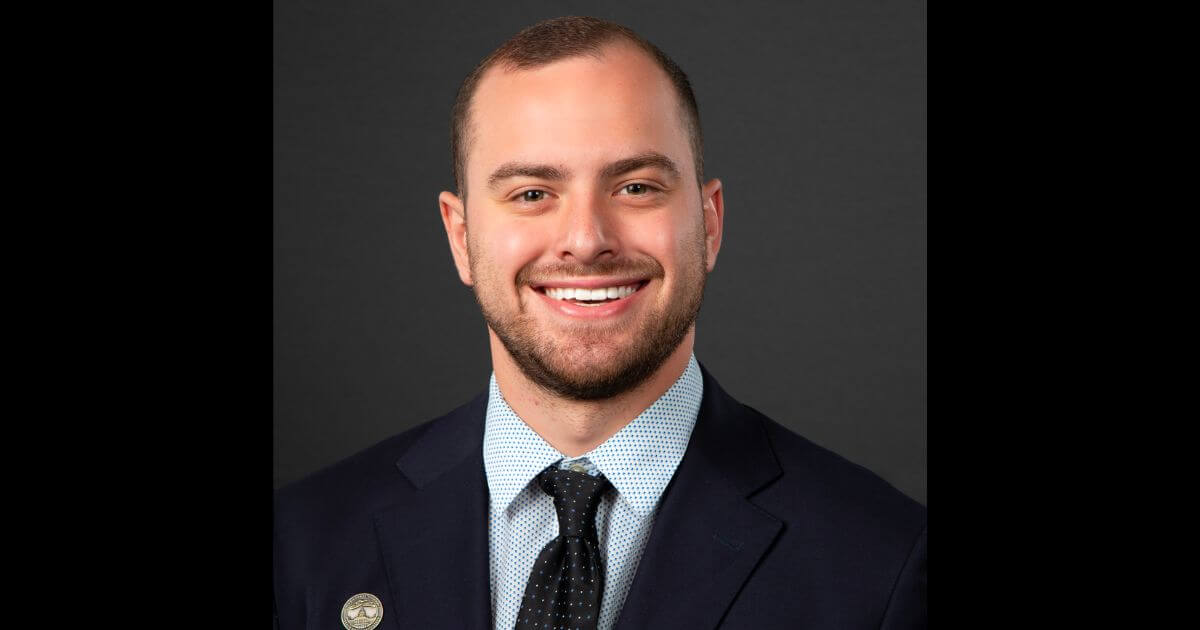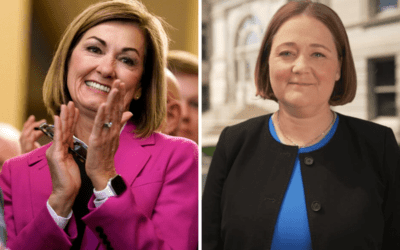
The second in Starting Line’s three-part series of comparative pieces focuses on what each of the Democratic Senate candidates consider to be the issue of most importance to them.
Absentee ballots will start to be mailed across Iowa on April 23 ahead of the June 2 primary. The race for Joni Ernst’s Senate seat is the most high-profile primary on the ballot.
In an effort to help educate voters on the Democratic candidates vying for Ernst’s seat, Starting Line will publish a comparative issue-focused article each week leading up to early voting. The first article focused on candidates’ health care policies, which range from expanding the Affordable Care Act to “Medicare for All.”
This article explores the issues of greatest personal importance to the five Democrats competing in the upcoming primary.
Michael Franken
“The coronavirus pandemic has further pulled the curtain back on deep and appalling inequities in our health care system,” said Franken, a retired Navy admiral.
“Universal coverage and quality, affordable health care” is the issue Franken elevated as most important to him.
He supports “fully” implementing and expanding upon the ACA and adding Medicare as a public option to the health care marketplace. Health insurance in the United States must include dental, mental and preventative care, Franken says.
Additionally, he believes the federal government either should directly negotiate drug prices with pharmaceutical companies or institute price caps on medication; implement a voluntary Expanded National Service Program to include training for nurses; and invest in community health centers and rural hospitals.
“To give everyone care, we don’t have to strip away private plans like the hard-earned ones union members enjoy, but we need to fix its exorbitant costs,” Franken said. “The health care crisis is too dire to afford sloganeering or policies which tumble in popularity once explained to voters. We Democrats cannot mess this up.”
[inline-ad id=”0″]
Kimberly Graham
Graham is running a campaign dependent on small-dollar donors and individual contributions, leading her to flag “ending corporate money and corruption in politics” as her top issue.
The Indianola attorney is critical of her fellow Democratic candidates who have accepted contributions from leadership PACs and other high-dollar donors. Some of Ernst’s largest campaign contributions in 2019 came from pharmaceutical companies, banks and health insurers.
“Every investment we aren’t making in our people and every time we place profits over people, can be traced to big money in politics,” Graham said. “It’s why we don’t have a universal, single-payer health care system. It’s why insulin costs so much that Americans are dying from rationing it. It’s why we invest in the already wealthy but can’t seem to invest in the lower and middle-income people.”
Since she launched her campaign, Graham has branded herself as the “Best Senator Money Can’t Buy.” The slogan, she said, came from Massachusetts Sen. Elizabeth Warren, who gave her permission to use the phrase and “encouraged me to run” in March 2019.
“It’s our slogan because getting corruption out of D.C. is the most important thing we can do to create a nation where everyone lives a health of health and dignity,” Graham said.
[inline-ad id=”1″]
Theresa Greenfield
For Greenfield, her top priorities — expanding access to health care and protecting earned benefits like Social Security and Medicare — all stem from her “Plan to End Political Corruption.”
If elected to the Senate, Greenfield will advocate for health care legislation that builds on the ACA and offers a public option. She wants to ensure rural hospitals have the resources they need and would work to bring down the cost of prescription drugs.
Her anti-corruption policy proposal includes overturning the Supreme Court’s Citizens United decision and banning dark money groups; outlawing corporate PACs; ending campaign coordination with dark money groups and super PACs; enacting a lifetime ban on lobbying for all members of Congress; strengthening the power of the Federal Election Commission; and codifying the Office of Congressional Ethics.
“Ending the political corruption, ending the influence of dark money will be a priority for me as Iowa’s next senator,” Greenfield said recently in a Facebook Live interview with Starting Line.
Protecting Social Security benefits is central to Greenfield’s campaign and serves as a personal motivator. She talks often about how Social Security kept her afloat as a 24-year-old widow.
“I’m here to tell you, the Republican solution to Social Security is to cut it — a program that we all pay into, a program that we all agreed to support, to take care of one another in our time of need,” Greenfield said at a campaign stop last year. “And I know I sure needed it. I wouldn’t be here today without Social Security.”
[inline-ad id=”2″]
Eddie Mauro
“With the pandemic around us 24/7, it can be hard to think of anything else, but I still feel that the most important issue in this race is climate change,” Mauro said. “If we do not act immediately to reduce our carbon footprint, even the most robust health care, education and social benefits policy will be doomed to fail.”
Climate change, Mauro said, “is inextricably intertwined with all of these issues.”
Mauro, a Des Moines businessman, has several climate-focused proposals on his website, including a “Marshall Plan level of investment” to make the U.S. a net-zero carbon emissions country by 2045; passage of the Green New Deal; “tripling” research and development funding for renewable fuels; working with farmers to protect the environment; rejoining the Paris Climate Accord; banning fossil fuel extraction on federal lands; and investing in agricultural infrastructure.
“While I support the Green New Deal,” Mauro said, “I am the only candidate in this race willing to say it does not go far enough. I believe our farmers and rural communities can be the leaders in this fight against climate change. Coupled with decreasing carbon emissions, incentivizing farmers to engage in carbon sequestration through regenerative agriculture could be our silver bullet in the fight against climate change.”
[inline-ad id=”3″]
Cal Woods
“I got into this race for U.S. Senate because I was not hearing the sense of urgency that I want to hear as a voter on some issues, but especially our climate crisis,” said Woods, a Des Moines realtor and contractor.
Citing the historic flooding along the Missouri River last year and statistics showing the first five months of 2019 “were the wettest on record for the entire United States,” Woods said “too many politicians in Washington still deny the science that confirms humans are responsible” for climate change.
Woods’ plan to “tackle this global climate crisis” includes: phasing out fossil fuel subsidies; investing more money into research and development for wind and solar technology; and planting more trees.
He supports implementing a carbon tax as an “incentive to business to develop and use more sustainable energy sources” and noted the Energy Innovation and Carbon Dividend Act as a “good start.”
By Elizabeth Meyer
Posted 4/14/20

Lanon Baccam wins 3rd District Dem primary, will face Zach Nunn
Baccam defeats Melissa Vine to challenge Republican incumbent Lanon Baccam defeated Melissa Vine in Tuesday’s Democratic primary for Iowa’s 3rd...

Hardin County man running for office as Trump-loving Democrat to local party’s dismay
Brad Rewoldt, who recently changed his party affiliation from Republican, says his support of Trump will probably 'piss off' Democrats There is a...

Scheetz: Tax cuts for all Iowans, not just the wealthy
State Rep. Sami Scheetz says all Iowans should benefit from tax cuts via a sales tax reduction As a state representative, my job is to serve the...

Kalbach: What Iowa Republicans focused on during legislative session
Our state legislative session finished up towards the end of April, and I’m glad it’s over! From further de-funding and privatizing our public...

Advocates file suit to stop Iowa’s ‘unconstitutional’ immigration law
Immigration advocates filed a federal lawsuit Thursday to stop Iowa’s new immigration law—SF 2340—from taking effect arguing that the legislation...

Iowa Republicans make outlawing gay marriage key 2024 campaign priority
Iowa Republicans have made outlawing gay marriage a key goal in their 2024 party platform. During the Iowa GOP’s 2024 state convention on Saturday,...




